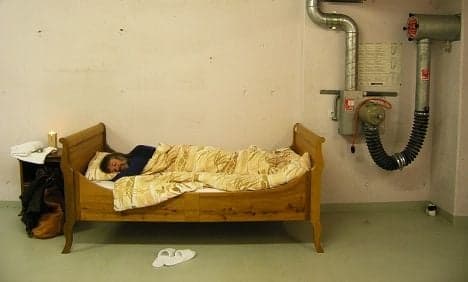Swiss cutting back on nuclear fallout shelters

Starting in 2012, only residential buildings with more than 38 apartments will be required to have fallout shelters in their basements, the Swiss government said in a statement.
The change is significant, since until now any building with more than eight apartments was forced to include an area to protect residents from nuclear war.
To compensate for the coming shortfall, all new bunkers will have to be capable of housing at least 25 people each.
Nuclear bunkers in private homes are one of the peculiarities that have defined Switzerland for over half a century. It is said to be the only country in the world with the capacity to shelter almost all of its 7.8 million population.
The country is currently home to some 300,000 nuclear refuges in private homes, schools and hospitals. Additionally, there are 2,500 public fallout shelters, some of which can hold hundreds of even thousands of people. In total, there is enough protection for more than 95 percent of the population, according to official data.
The change in the law approved by the government on Thursday was first suggested by the Council of States in June, in the wake of Japan’s Fukushima disaster.
Prior to the nuclear crisis sparked by the March disaster, the discussion had focused on whether to abolish the home bunker requirement completely and instead build shelters only in hospitals.
Switzerland’s system of emergency shelters was created in the 1960s, at the height of the paranoid Cold War era, amid fears of nuclear war between East and West.
Many bunkers are now used as storage space, and one was even converted into "the world's first no-star hotel". The Null Stern Hotel in Teufen closed for business in June 2010 but remains open as a museum.
In 2005, the then member of parliament Pierre Kohler presented an initiative to abolish the law that made the construction of nuclear bunkers mandatory in private homes on the grounds that these “relics of other times” made housing more expensive.
After studying his petition, the Federal Council rejected it arguing that these constructions were still useful outside of a war context, since they could also be used as safe havens from chemical accidents, natural disasters, or a terrorist attack using nuclear weapons.
Join the conversation in our comments section below. Share your own views and experience and if you have a question or suggestion for our journalists then email us at [email protected].
Please keep comments civil, constructive and on topic – and make sure to read our terms of use before getting involved.
Please log in here to leave a comment.